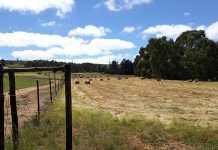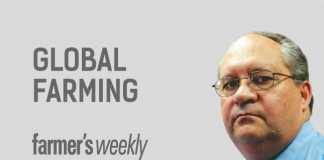The Ninth World Trade Organisation (WTO) ministerial meeting took place in Bali in early December. It was the fifth meeting since the launch of the Doha Round of WTO negotiations in 2001, but concluding the Doha Round was not its aim. Instead, it merely endeavoured to finalise certain key elements of the negotiations. Ministers adopted the ‘Bali Package’, a series of decisions aimed at streamlining trade, allowing developing countries more options for providing food security and boosting least-developed countries’ trade.
WTO trade agreements are based on three pillars – market access, export support and domestic support.
Market access: This is governed by import tariffs and tariff quotas. In South Africa, our agricultural tariffs were initially set at a level far below the bound (allowed) rates, because we wanted to show the world what good global citizens we were. First World countries pegged their import tariffs at the bound levels. At Bali it was decided to streamline the administration of tariffs and quotas and thereby streamline export management.
Export subsidies:
For agriculture, the decision taken on export subsidies was probably the most important. At the 2005 ministerial meeting in Hong Kong, it was decided to phase out all forms of export subsidies by 2013. This has yet to happen, a fact acknowledged at Bali. WTO members reaffirmed their commitment to phasing out export subsidies, but no firm deadline was set.
For now, world prices for commodities are high and countries are able to export at the current world prices without resorting to export subsidies. However, if prices decrease again, export subsidies will be reintroduced.
Domestic support:
This did not receive much attention at Bali. It was clear that domestic support is so much a part of agriculture in EU countries and the USA that it can be regarded as a permanent part of the international trade scene. Countries will find all manner of clever ways to get subsidies into the so-called Green Box of WTO-compliant subsidies. The current US farm bill proposing an insurance scheme for farmers is a good example of this.
Concerns
WTO agreements may have resulted in more trade for developing countries, but while exports of raw materials from these countries are up, imports of finished goods from the developed world have increased at a faster rate. Industries in developing countries did not develop, and the benefits of freer trade were unevenly shared between developed and developing countries. The WTO continues to attempt to address the concerns of developing and least-developed countries in this regard.
Bilateral agreements
Countries also negotiate bilateral trade agreements at the WTO. South Africa has a trade agreement with the EU and is discussing a new agreement between the SA Customs Union and the EU. These agreements are based on trade preferences between countries. In the case of the EU, South Africa allows specific quantities of EU products to be imported tariff-free or at lower tariffs, while we enjoy the same preferences on the European market.
Tariff reductions may take place symmetrically, when both trading partners reduce tariffs at the same rate, or asymmetrically, when one partner reduces tariffs at a faster rate. Theoretically, trade agreements provide for a freer flow of goods. In practice, however, First World countries use non-tariff barriers to protect their markets, while smaller countries such as South Africa do not have the will or capacity to do likewise.
Implications for farming
Many studies have shown that a reduction in subsidies will result in higher world prices in non-subsidising countries and lower prices in subsidising countries. Unfortunately, subsidies are so deeply entrenched in developed countries that they will probably not be reduced. WTO negotiations and trade agreements may in future result in increased access to EU and other markets. However, the very narrow application of phytosanitary measures here will make it very difficult for SA exports to enter these markets.
Quality certification must be provided by government, and it is doubtful that the SA government has the capacity to do so.
SA producers and processors have already made significant inroads into the African market. Given the problems of exporting to the EU and other First World markets, it is probably more efficient to exploit neighbouring markets.
Dr Koos Coetzee is an agricultural economist at the MPO. All opinions expressed are his own and do not
reflect MPO policy.



